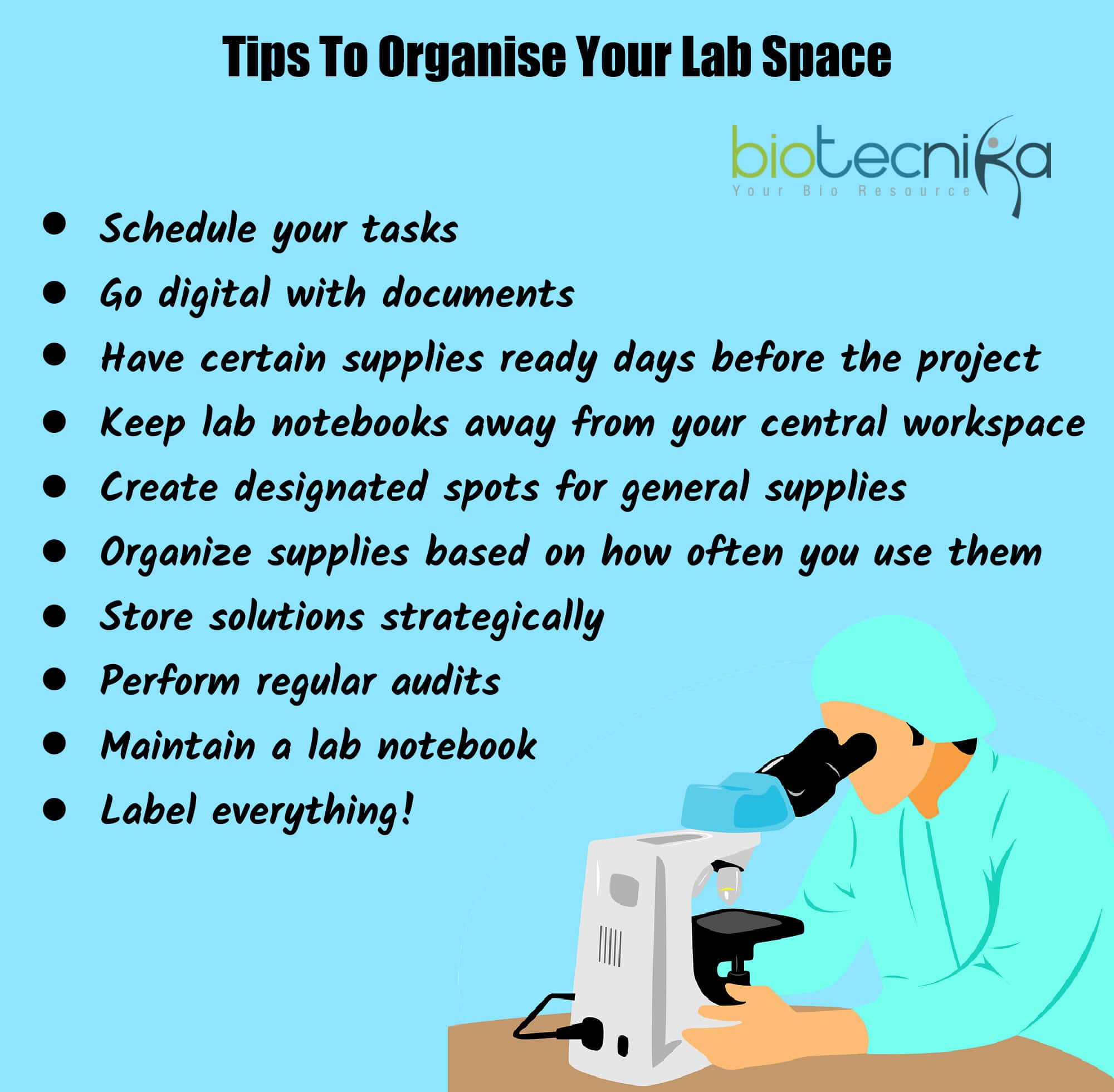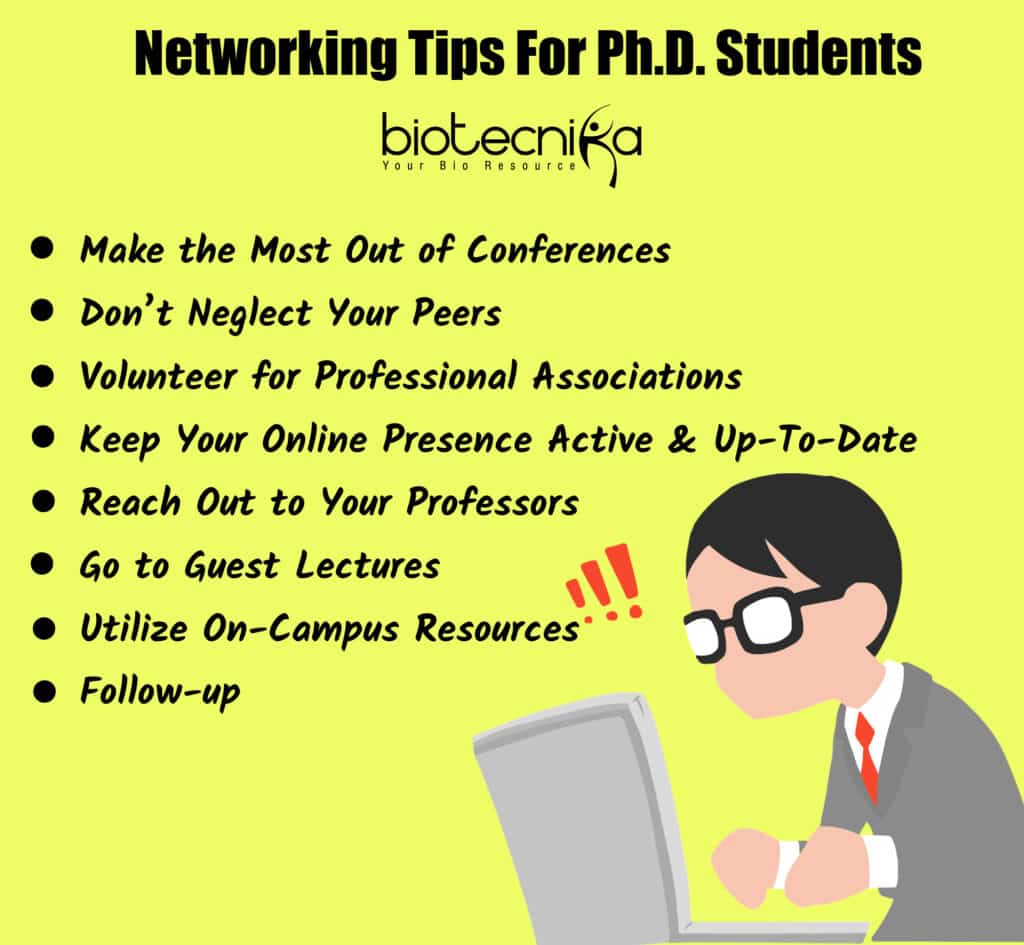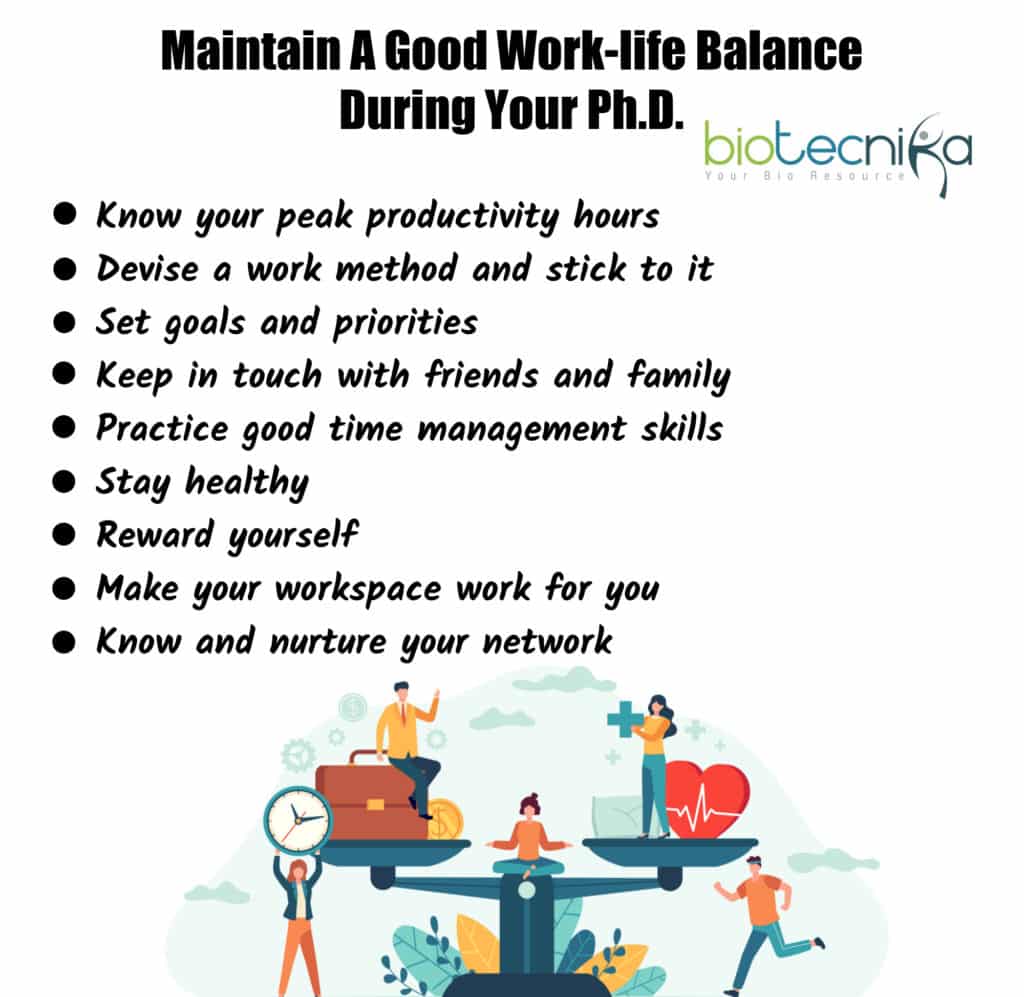Ultimate Guide For New Life Science Ph.D. Students
When you embark on your first Ph.D., it can be really daunting. Particularly, in the beginning, it can feel entirely new and terrifying. Completing a Ph.D. while maintaining physical and mental health can be very challenging.
Being a Ph.D. student means being your own boss, at least when it comes to planning and managing your research project. It seems excellent to be your own boss, but it can also be devastating unless you’re prepared for a challenge. Before your course starts, you must make sure that you are ready for it.
Everyone pursues a Ph.D. for very personal reasons, and everyone finds them challenging in their own various ways. It may seem like a deadly move to some, but it may be just a small inconvenience to others.
As new Ph.D. students feel scared to start the new avenue, we are here to help you guys overcome this challenge. If you know that you want to pursue a Ph.D. degree and you are looking at your options, at the outset, there are a few things you need to consider to make your entire Ph.D. life less stressful and more worthwhile in the
long run.Let’s now check out the ultimate guide for new life science Ph.D. students.
Pursue a Ph.D. only if you have the true passion
Do not follow the path of a Ph.D. just because you feel like you should. You must really love what you do and understand the significance of the results you are pursuing. Pursuing a doctrate degree will require you to dedicate a lot of time.
If you are really interested in research and like to spend a lot of time thinking, reading, researching, and discussing ideas, you will love your Ph.D. journey; otherwise, it can be really challenging for you.
If you have doubts or concerns about a topic, or if your commitment to finishing a Ph.D. loads you with anxiety, it may not be the best choice at the moment. Take a step back and re-think – it’s certainly not a shame.
Find a potential supervisor
Sometimes things won’t go as scheduled, and you doubt yourselves, even if you’re the world’s most highly dedicated scientist. This is quite normal and something that all graduate students will experience at some point in their careers. And this is where having a great supervisor will be necessary.
Sometimes you will strive for motivation for your research work, and if you have a great supervisor, they will help lead you and put you on the proper trail.
Frankly, academics aren’t necessarily the best people to work with. Although your supervisor cares about your project and your progress, they also have a lot of workloads.
At the beginning of the project, no matter how great you think, you and your boss may disagree at some point. You may also have problems with your supervisor, and if you are passionate about your research work, this will give you the impetus to pass the challenging circumstances.
Keep your relationship professional and constructive, and ensure you know what is expected from you. Simultaneously, set boundaries for what you consider to be acceptable, and remember that you are both working towards the same objective!
Don’t panic
Once you have started your Ph.D. journey, and you might probably be panic-stricken. But you don’t have to panic! You belong to one of the most supportive communities. You can reach out for help from your mentors, seniors, friends, etc.
Read, read, read!
When you start your Ph.D., allocate as much time as possible to read about current research and theories related to the area you are about to explore and research.
It may be frustrating when you do not get into your research directly, but having that background knowledge helps to understand and interpret the results you get.
Don’t read just the subject you want to research. Learn the techniques you intend to use too so that you can suitably outline your projects.
It’s very easy to get stuck in your laboratory work and forget to stay up to date. These are essential in understanding your own work, and they will also inspire you with new ideas.
Resources such as PubMed enable you to receive custom email notifications, telling you about new papers with specific abstract keywords that are published during the week.
Set good habits immediately
The ultimate goal of a Ph.D. is your thesis. You will have to do everything you can to prepare yourself for the process. If you take solid steps from the beginning, “you in the future” will be grateful to “you in the past.”
Keep proper lab notes. This will greatly help you while composing your thesis. In addition to this, keep a complete record of every experiment: what you did, how, why, and most essentially, the results! After 3 or 4 years, you may forget why you changed those buffers or the incubation time, or some other tips you got with your own experience.
Write it down!
Build a good relationship with your supervisors
Your Ph.D. supervisor will be your guide, your champion, and the go-to person whenever your work isn’t going as intended. That implies that having a great relationship with your supervisor is extremely significant when it comes to deciding the success of your Ph.D.
Great communication is important from the outset. Try to get to know your supervisors before the Ph.D. program starts and find out the supervisor’s behavior and know what to anticipate. You can also inform them if you want to learn a certain technique or if you want to develop additional skills.
Proper communication between the student and supervisor is always important. Both formal and informal meetings need to be considered for long-term and successful relationships. They may seem to be a scary boffin, with an exhaustive knowledge of every piece of supporting literature that you will ever require. They have a solid skill for asking you inquiries about your experiments and highlighting imperfections that you had never even contemplated. However, they know what you are going through, and they want you to attain your very best!
Plan, plan, plan!
You will get confidence and trust in your work once you get further into your Ph.D., the work will start to feel much less daunting. But that does not imply there won’t be difficulties but trust us; you will be more capable of dealing with them.
Attend conferences, host symposiums, or workshops, look for training courses, maintain a healthy work-life balance, and focus on small signs of progress to gain the most out of your Ph.D.
Organize your lab space

It is important to guide the direction of the research. It’s a good idea to take the initiative by proposing what experiments you want to do and what you want to concentrate on. A Ph.D. is the first step towards becoming an independent researcher, and in the end, you will have to defend your work. Taking control and being a leader does not mean you have to know everything. Don’t be bashful; always discuss your experiences and doubts with your supervisors and colleagues.
Networking
Starting a Ph.D. in life science means – You are entering into a vastly supportive community both offline and online. There is a multitude of incredible scientists willing to offer advice, support, and opportunities. You only have to get involved.
Be an active member of the scientific community, and support organizing workshops, community engagement events, and/or conferences. This is an excellent method to network and meet new people, as well as it helps to expand your skillset outside of the lab, which is very rewarding.
Strong networks offer a series of advantages, including opportunities for publishing, collaboration, building your CV, exploring future career opportunities, learning, sources of information, innovation, and a means of getting things done.
Always learn something new!
Stay positive even if things don’t go as planned
You are definitely going to face ups and downs in your Ph.D. journey. Stay positive even if you make an error, have to start from scratch, don’t get the outcomes you require, or your project isn’t going as planned.
If things are going terribly bad in the laboratory, recall that it is not the end of the world or final battle, and negative outcomes are also equally important.
Don’t be afraid of making mistakes!
Even though we all know mistakes are essential to learn and grow, but deep inside, nobody wants to make mistakes.
A doctoral student should not fear making errors; it is part of learning. Don’t get discouraged. You learn the best of the lessons of your life while making some silly mistakes.
When you make a mistake, it means there is a right way to do it. If you do your best to achieve it, you will definitely succeed. If something goes awry or something unforeseen happens, you must find alternatives and new approaches rather than cribbing or complaining.
Do everything intensely
Question, Read, and Think intensely. When you embark upon a Ph.D., you are bravely going where only a few others have gone before. This calls for courage and thorough research.
The mindset you are now building will help you throughout your whole career. Do not concentrate on one small area. Find out what your co-workers and fellow students are doing.
Maintain a good work-life balance
The importance of the work-life balance in a doctoral student’s life can’t be exaggerated. PhDs are very intense. But you’ll strive to do any good work if you are constantly tired and worn out. Don’t burn yourself out. Keep aside some time for your friends and family, and take a break. If you want to take a day off, go ahead. Proper work-life balance is not just essential for surviving a Ph.D., but everything that comes after.
It’s also not a good idea to compare yourself with other students in the laboratory – You have a totally different journey than others. So stop comparing yourself.
Ph.D. is an opportunity to really get yourself into academia. Do not be hesitant to ask questions and push the limits of your learning. Don’t be scared to be wrong, and don’t be worried about saying I don’t know.
Sometimes, if you are asked something you don’t know, don’t see it as a problem; utilize it to increase your knowledge. Try to expand your knowledge and skills in all the ways possible.
Learn to do teamwork
As a Ph.D. student, you will normally be a part of a small research group consisting of your supervisor and a few other students. You may have to work together with all of them. You may also have to criticize your teammates constructively and also receive constructive criticism.
If you have never experienced a job critic before, you will certainly experience one during your first years of Ph.D. So you will have to ‘desensitize’ your ego. This can be done by embarking on short-term projects that will make you think from various aspects and put you in the firing line for some critique.
Celebrate the achievements
It’s easy to get consumed by everything that’s not working, but don’t forget to take the time to celebrate the amazing advancement you are making. Always remember that you are doing something very worthwhile.
It is necessary to set research goals that can be achieved, and celebrate successes, no matter how small it is. After all, each small success is the stepping stone towards the result you’re looking for.
Don’t be afraid to talk or ask
Your Ph.D. is probably one of the most stressful things ever. As already mentioned, the life sciences community is huge and very supportive. Don’t be afraid to reach out and talk to people in your field because they understand the challenges you face.
Concentrate on long term goals
Most of the projects that you would have carried out during your post-graduation degree or while working are comparatively short than a Ph.D. project. Therefore before you begin your Ph.D., it’s essential to turn your focus of expectation from short-term “happiness” to long-term aims! Help yourself do this by speculating about what it is like to wait for years to get the fruits of your labor – after all, they do say that all great things come to those who wait!
Self-motivation is a must!
If you were a grad student or you had worked for many years before beginning the Ph.D., it is very likely that you were constantly bombarded with particular projects to complete and that the feedback from your professors or your manager helped you remain motivated and establish new challenges for yourself. But, during your Ph.D. studies, the external sources of motivation will disappear, and you will have to master the art of motivating yourself. You don’t have to be a genius to learn how to inspire yourself.
Before starting your Ph.D., try to regularly give yourself some short-term projects that need endurance and self-determination. This will make you ready to endeavor even higher when your Ph.D. course commences.
Enjoy yourself!
A Ph.D. will be a big part of your life in the future. This means that you really have to enjoy what you are doing and have fun while doing it.
PhDs are challenging and stressful; however, they are also an exceptional time in your life when you get to work individually on something you find interesting in a group of like-minded people. So don’t just see your Ph.D. as a difficulty; try to have fun with it!
Keywords: Ultimate Guide For New Life Science Ph.D. Students; Guide For New Life Science Ph.D. Students; Guide For Life Science Ph.D. Students; Tips and guide for life science Ph.D. students; Guide For Life Science Ph.D.; Ultimate Guide For New Life Science Ph.D. Aspirants.
Read more:








































